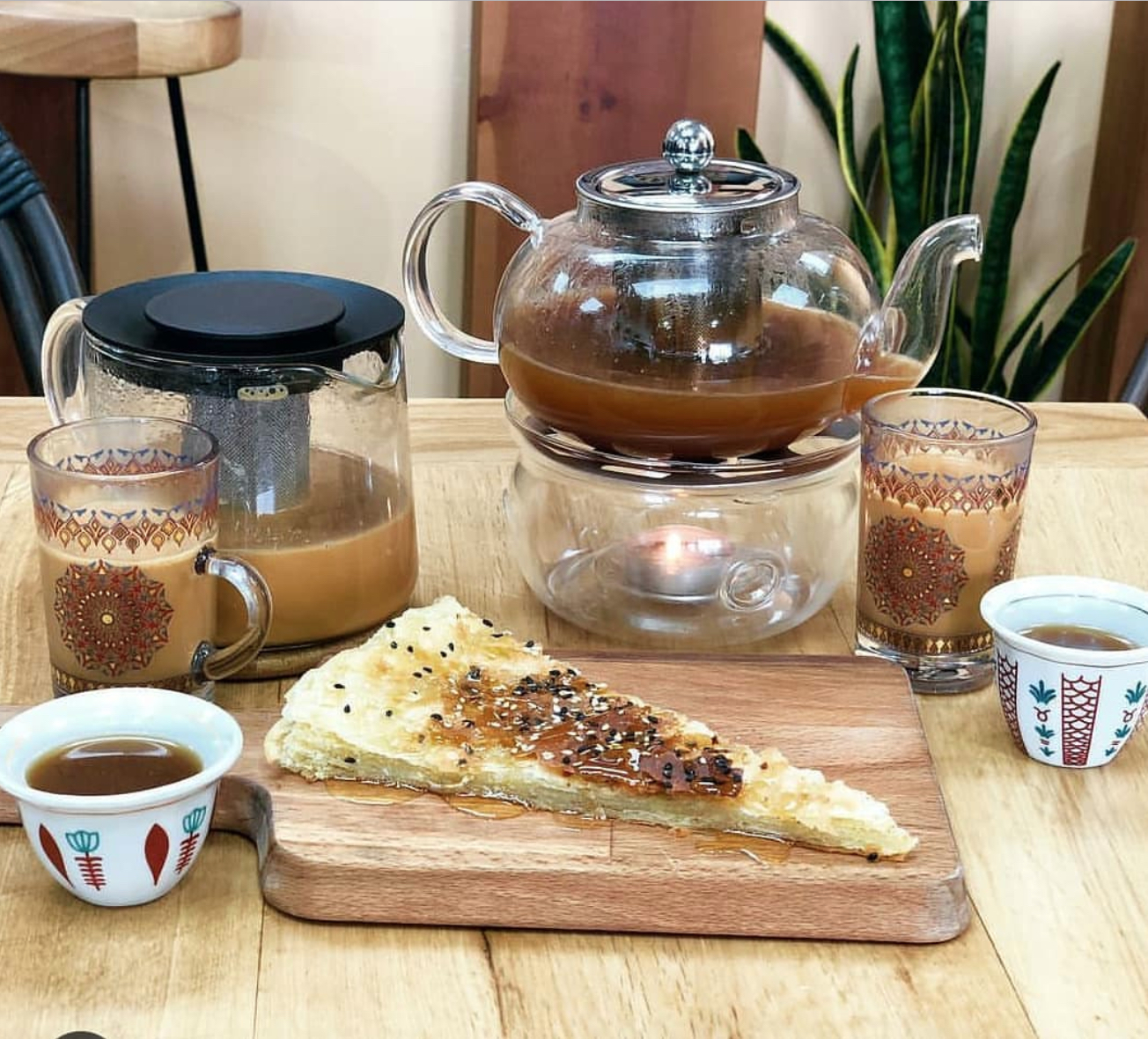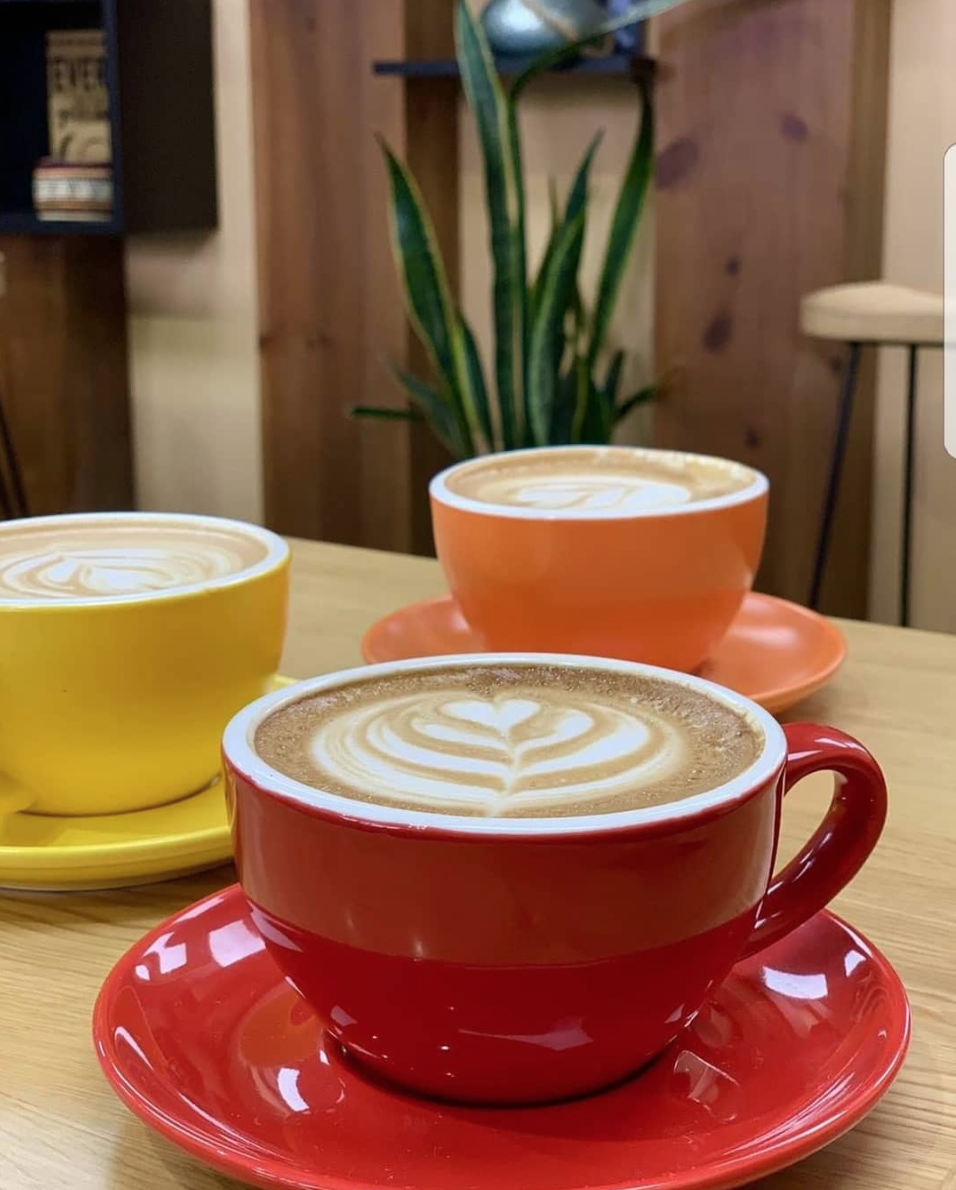Taking Coffee Back to its Roots: Qahwah House in Dearborn

In much of the western world, our coffee is made from beans that are grown in Latin America, but the origin of the coffee bean, and coffee for that matter, is the Middle East. By the 15th century, coffee was being exported and consumed all across the Arabian peninsula, with Yemen being one of the most crucial centers for coffee production. Even the word mocha, which is now almost synonymous with coffee, comes from the Yemeni port of Mocha, where ships full of coffee beans were sailed across the world to share the gift of coffee.
In Arabic, Qahwah means coffee, and at Qahwah House, coffee is made the traditional way for a modern audience. From your first step through their doors you are greeted by the fresh smell of coffee being brewed in traditional kettles, next to fresh sabaya pastries. The café blends the coffee shop aesthetic with traditional Yemeni designs. Their rustic, modern take on a traditional Arabic market and coffee house makes for a captivating, unique layout. While the interior is small, the café hosts two floors of seating, each furnished with a myriad of Yemeni cultural objects, from woven baskets to crafted porcelain cups. To top off the coffee shop atmosphere, four barrels full of coffee beans take center stage, helping add to the pleasant aroma.
At Qahwah House, coffee is made through traditional means from beans grown in Yemen. As they say on their website, the owners are originally from Yemen, where they were “born and raised amidst coffee plants,” and boy does it show. Each pot is made with care and it shows in the flavor. Their helpful staff helped me select some of their most popular drinks, including the Sanaani coffee, the Mofawar coffee and the Yemeni latte, and each was brewed with expert precision. The Yemeni latte blended the tastes of a typical latte with the tastes and spices of Yemeni sourced coffee. Overall, the drink contained the perfect amount of milk, as to enrich the taste of the drink, but not dilute the flavor of the beans themselves. The presentation was superb: the drink came in a red porcelain cup, topped off with a beautiful leaf design. The Mofawar coffee was a more traditional drink, and was served without the fanfare of the latte. The drink consisted of ginger, cinnamon, honey and Yemeni spices, which created a uniquely sweet, nectar like taste. The Sanaani coffee was the most bitter of the three, with only cardamom spices being added to the coffee. The drink was rather simple, with the only added tastes being the flavors of the spices. As someone who enjoys coffee, and drinks it regularly, I too often am served coffee made from burnt old beans, but at Qahwah House, I was pleasantly surprised. The unique pairings of spices and cream, mixed with the perfectly roasted beans only helped complete the experience.
Despite my enjoyment and appreciation for the craft, I must note that authentic Yemeni coffee is not everyone’s cup of tea (or in this case coffee). While I loved the taste of the Yemeni Latte, and Mofawar coffee, the Sanaani coffee was a bit too strong for my blood. Most of the authentic Yemeni coffees are made using cardamom spice, which helps give it its distinct taste, but can be a bit overwhelming for those not used to it. While every drink is extremely well made, I do urge those who are unfamiliar with traditional Arabic coffee to keep an open mind when going to Qahwah House, and to expect to have coffee unlike anything you have tasted before.
For anyone who enjoys coffee, Qahwah House is a must try, and provides an experience not found in most coffee shops. From its coffee to its decor, the café is a testament to passion. Its blend of past and present, modern and traditional, and American and Yemeni, is most welcome in this community, and I hope it’s here to stay.



